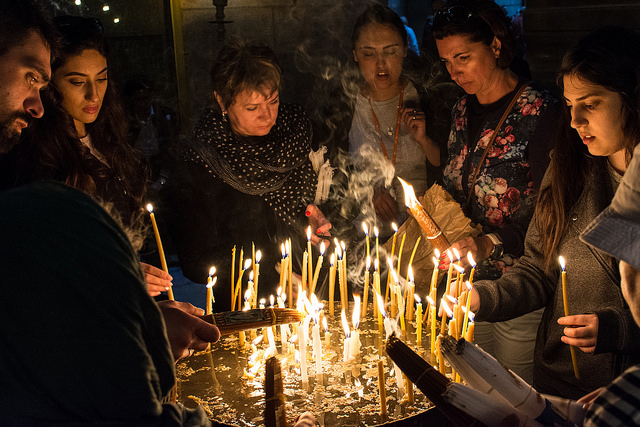In this week’s edition of our weekly Wednesday newsletter, Scott considers Dietrich Bonhoeffer’s concept of “cheap grace,” and asks: do we often pursue “cheap unity” as well?
Dear friends in Christ,
Today, as I was praying morning prayer, I was struck by the assigned gospel reading, from the 17th chapter of John. Verse 20 has Jesus praying to the Father on behalf of his disciples, “I ask not only on behalf of these, but also on behalf of those who will believe in me through their word, that they may all be one.”
That they may all be one. Of course, Jesus is talking about us, his disciples, just as surely as he was talking about his followers seated around that table twenty centuries ago. What does it mean to say that we may all be one?
It seems to me there are a couple of dangers lurking here. One would be to say that we are all different, and so the quest for deep unity is pointless. On the other hand, we might be tempted to work for a kind of false unity that obscures or ignores our very real differences, creating an illusion of unity. I see quite a bit of the latter in our churches today.
Much as Bonhoeffer talked about “cheap grace,” I think there is such a thing as “cheap unity.” The antidote to cheap grace is costly discipleship, and I think the same cure works for cheap unity. If we see ourselves as followers of Jesus, people who give everything over to following him, I believe Christ’s vision of unity may be possible. To be bound together by baptism, by grace, by discipleship, and by our place in the Body of Christ, is to be bound together in unity. When we see ourselves in this kind of unity, we can acknowledge and even celebrate our differences and our unique giftedness.
Jesus prayed that we may all be one. What would need to happen in your life for Jesus’ prayer to be fulfilled? What would our world be like if the church were truly and deeply at unity?
Yours faithfully,
Scott Gunn
Executive Director
To get future reflections from Scott in your inbox, subscribe to Forward Today.




